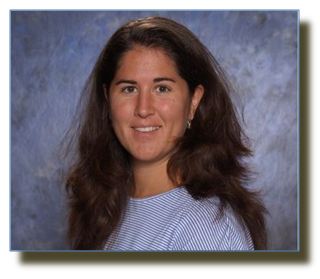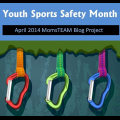In recognition of April as National Youth Sports Safety Month, MomsTeam asked 30 experts to write a blog a couple of years back answering two questions: first, how or why did they get into their field, and second, how have they made a difference in the life of a youth athlete in the past year.
Here's the blog we posted from Barbara Wertz, Outreach Athletic Trainer at Susquehanna Health's Sports Medicine Center in Williamsport, Pennsylvania.
By Barbar Wertz, ATC, ATC/L
How did I get into my field?
In high school, I loved playing sports. When I suffered two knee injuries, I went to a sports medicine center, where I received treatment from athletic trainers. I had never even heard the term "athletic trainer" and didn't know what they did. My interest about the profession piqued, I was excited to learn that it gave me the opportunity to combine my interest in health care with my love of sports. I have been working as an athletic trainer since 1992.

How have I made a difference in the life of an athlete?
This year I was able to make a difference in the lives of one athlete and his parents. He had suffered a head injury during basketball practice which he failed to report to me, his coach or his parents. Two days after his injury, the signs of a concussion became very obvious to his family and they took him to the E.R. for evaluation.
The E.R. staff diagnosed this athlete with mild traumatic brain injury; an MRI showed some swelling in part of his brain. His parents were very concerned, scared and panicked by the information they received. The athlete's mother came into the training room the following day and frantically recalled all of the events of the previous 24 hours. I was able to calm her down and have a good conversation with her about the E.R. visit, her son's test results, and what would be the best course of treatment for his injury.
The mother had heard of neurocognitive testing and stated how important it was that this testing be available to our athletes. To her surprise, I told her that we used such tests for our athletes, and that her son had had a baseline test. She was excited to know that such testing could be used as a tool to monitor her son's recovery.
As outreach coordinator for Loyalsock Township High School, I spoke with the faculty and staff about the athlete's injury. The athlete's guidance counselor impressed upon the faculty the need for academic accommodations, including allowing the athlete more time to complete his final exams. During his second semester, a new class he was taking was contributing to an increase in symptoms and delaying recovery. Arrangements were made for the athlete to transfer out of the class, helping the athlete's symptoms to resolve. This spring the athlete has recovered enough to play baseball, which he truly loves. His is a success story which involved a multi-disciplinary, team approach to concussion management, of which I was proud to be a part.
Barbara Wertz, ATC, ATC/L is Outreach Athletic Trainer for Susuqehanna Health's Sports Medicine Center in Williamsport, Pennsylvania. She was formerly Director of Athletics and Athletic Trainer at Loyalstock Township (PA) High School, Program Director of the Riverbend Sports Medicine Outreach Athletic Training program at Atchison Hospital in Atchison, Kansas, and Head Athletic Trainer and Adjunct Instructor at Benedictine College in Atchison. She has a B.S. in Health Sciences from Lock Haven (PA) University.



















